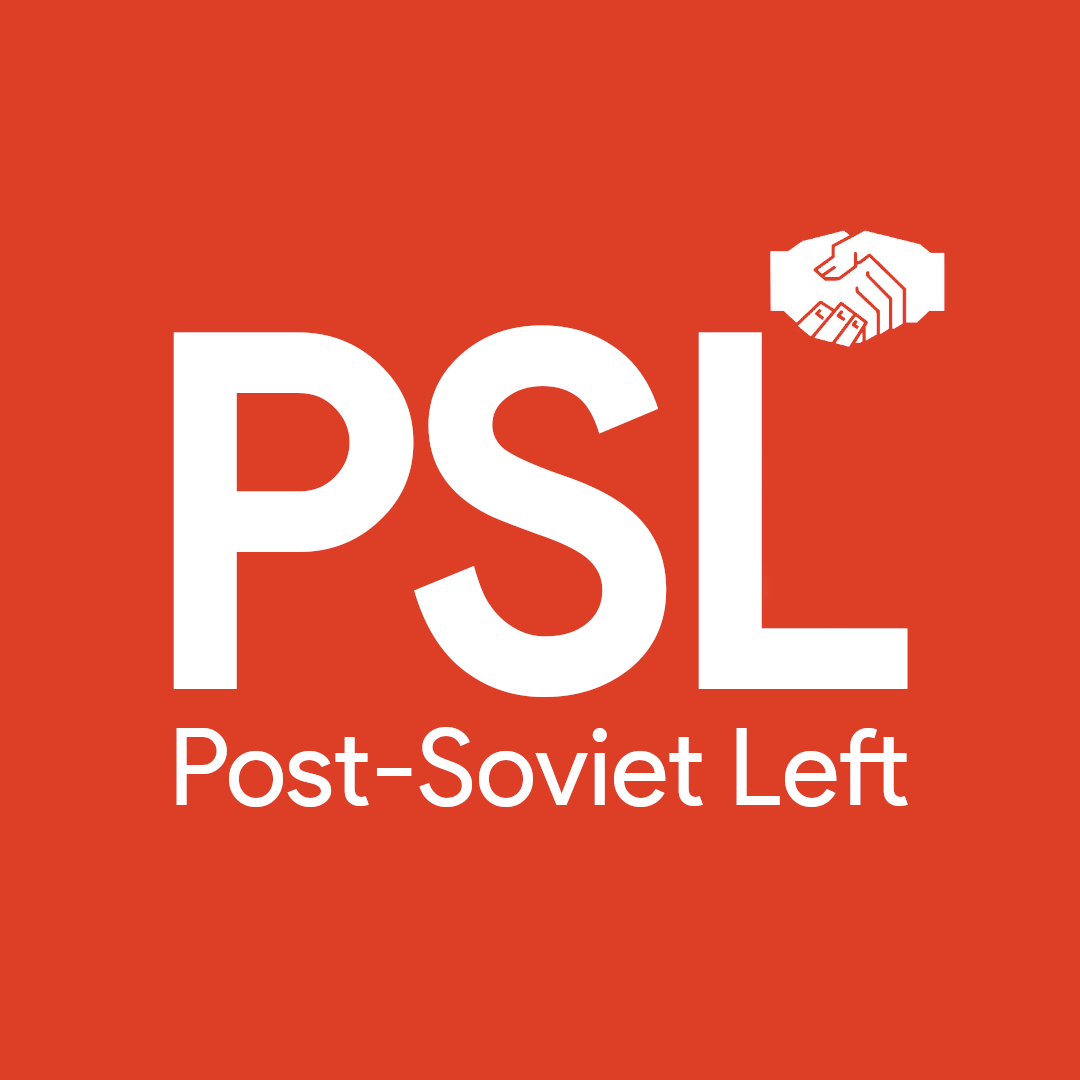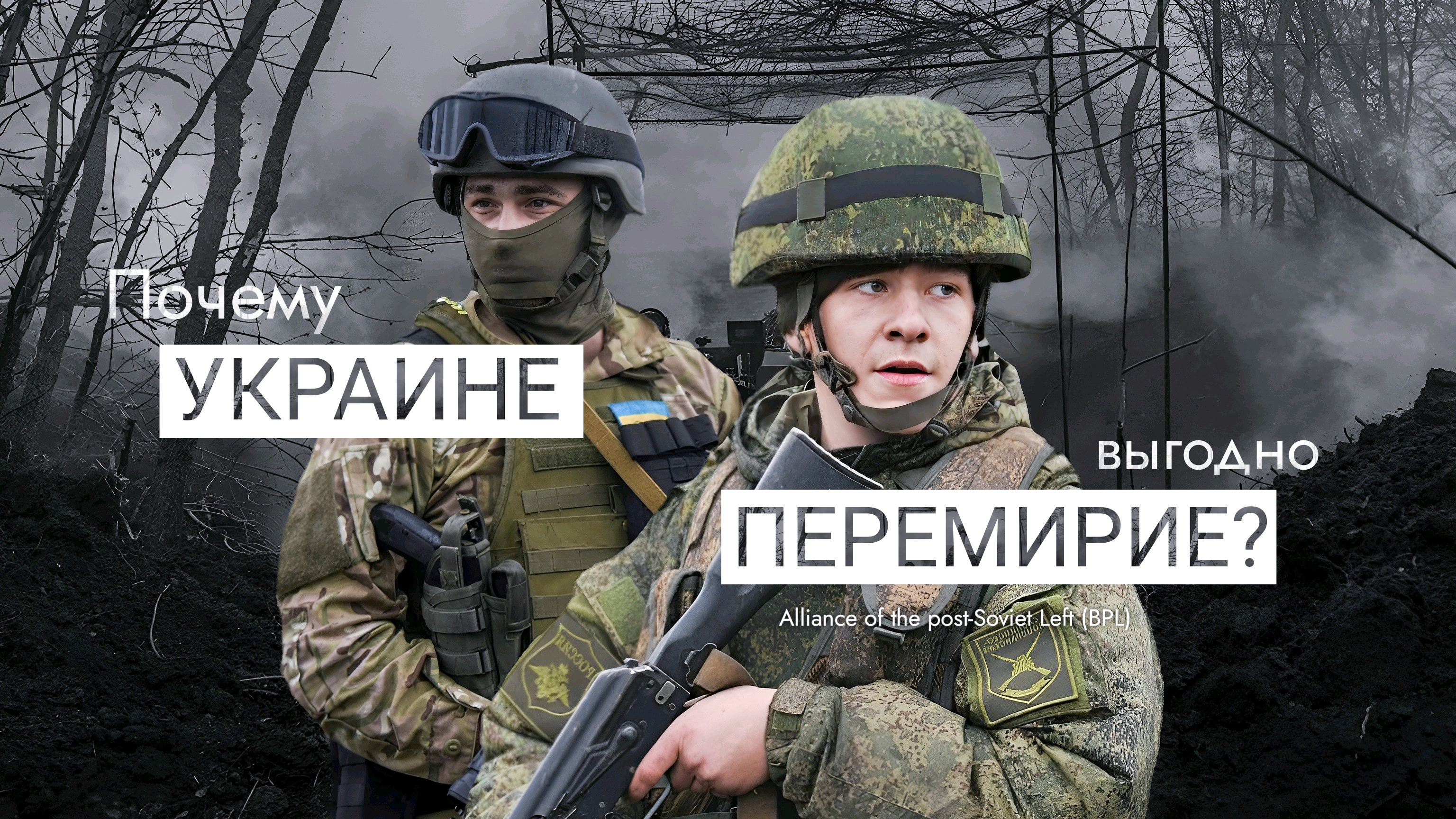On March 29, 2022, important negotiations took place in Istanbul between the delegations of Ukraine and Russia, negotiations on which there had been high hopes. On that day, the Ukrainian side presented to the Russian representatives a draft agreement known as the “Istanbul Communiqué.” The document included key proposals: Ukraine expressed its willingness to enshrine a nonaligned and non-nuclear status, provided that it received specific international security guarantees. It was proposed that the status of Crimea be resolved exclusively through diplomatic means over the subsequent 10–15 years.
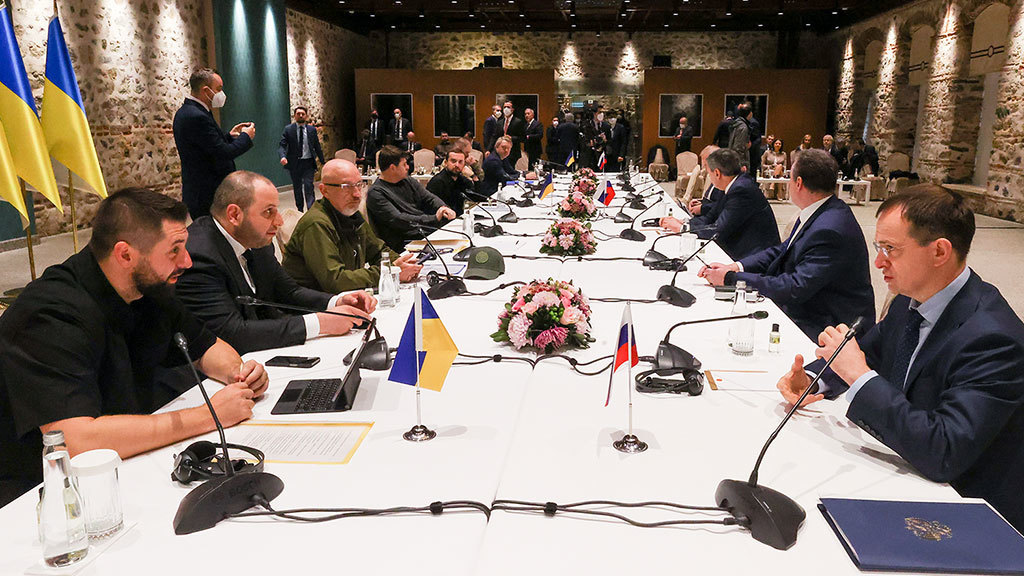
According to the German newspaper Welt am Sonntag, the discussion showed little progress: the Ukrainian delegation agreed to neutrality and a nonaligned status, while the Russian side was ready to provide security guarantees that could involve permanent members of the UN Security Council. This step sparked hopes for a possible resolution of the conflict and drew the attention of the international community, following the situation closely.
However, despite the agreements reached, the negotiation process ultimately fell through. . As David Arakhamia, head of the Ukrainian delegation, recounted, Ukraine’s stance on the conditions proposed by Moscow in Istanbul in spring 2022 was confirmed by then–UK Prime Minister Boris Johnson. According to Arakhamia, immediately after returning from Istanbul, Johnson arrived in Kyiv and stated that the UK did not support signing any agreements with Russia, suggesting instead to focus on further military support and continued resistance.

Johnson himself later called the claims about his role in disrupting the negotiations “Russian propaganda,” categorically denying any involvement in Kyiv’s decision. Nevertheless, this episode became one of the key turning points that determined the future course of the conflict.
All this happened against the background of the retreat of Russian troops from around Kyiv and a series of successful operations by the Armed Forces of Ukraine, which at that time managed not only to organize an effective defense but also go on the offensive. Patriotic sentiment was growing in Ukrainian society, sometimes escalating into openly nationalist and chauvinistic slogans; many believed that the Russian army would soon be forced to withdraw to internationally recognized borders.
In that atmosphere, the breakdown of peace negotiations went almost unnoticed by both sides. Euphoria from military successes and belief in the possibility of completely driving out the enemy overshadowed any attempts at a diplomatic settlement, making them insignificant amid a general resolve to continue resistance.
However, it is also important to consider the other side: the discovered facts of mass killings of civilians , committed by the occupying forces in Bucha and other cities in the Kyiv region, also influenced the course of events.
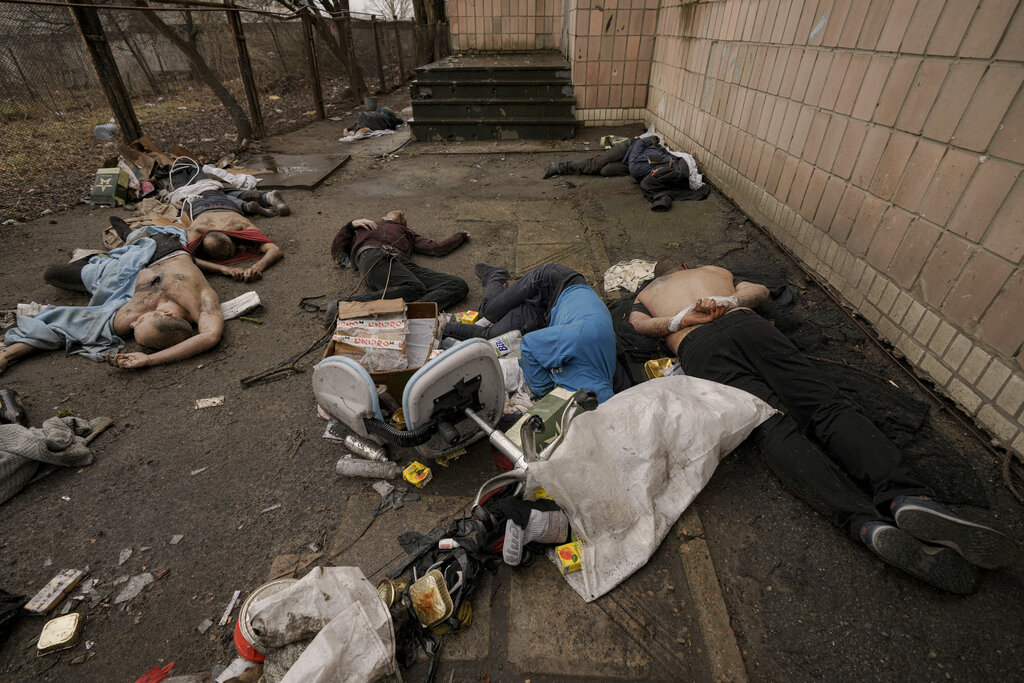
Even so, dialogue between the two states continued. Answering journalists’ questions, Ukrainian President Volodymyr Zelensky stated that despite the horrifying consequences for Ukrainian cities and the armed forces, it was extremely important to continue talking with the Russian state. According to him, even under such conditions, finding ways to resolve humanitarian issues was crucial.
Subsequently, following the attitudes of nationalist-minded groups supporting his leadership and guided by current political interests, Zelensky began using these tragic events as a pretext to derail the negotiation process. However, one should not rush to defend Putin either, as in this context he himself was also inclined to sabotage negotiations.
It should be noted that on multiple subsequent occasions, the Ukrainian leadership disrupted attempts at de-escalation. According to The Washington Post, an unexpected incursion of the Ukrainian Armed Forces (UAF) into Russian territory on August 6 led to the cancellation of planned talks to cease mutual strikes on energy infrastructure. These indirect negotiations were supposed to take place in Doha under the mediation of Qatar. The publication cites its sources in diplomatic circles, reporting on Saturday, August 17, 2024, that some diplomats had hoped an agreement reached in Qatar could have served as the foundation for a more comprehensive treaty to end the war.
More than two and a half years have passed since then. The war goes on, and every day brings new victims. The Russian army’s offensive, turning into a protracted and bloody conflict, offers little hope of a quick end. As I write these lines, innocent civilians are dying, and only God, if He exists, knows when this tragedy will end.
But perhaps the time has come to ask: is it not time for negotiations? I understand that this topic is difficult and triggers painful emotions for many. I am neither a diplomat nor an international negotiations expert. However, I will attempt to honestly and openly explain why peace negotiations, despite all the associated difficulties, represent a chance for Ukraine itself. In a situation where daily losses and destruction continue to erode the country’s resources and strength, any steps toward peace could become the foundation on which rebuilding may one day begin.
Territorial Integrity of Ukraine
Despite significant successes achieved by Ukraine in the course of its counteroffensives—freeing a substantial part of Kherson and Kharkiv regions and even striking at border areas of Russia—the strategic balance remains shaky. The Russian army, though advancing slowly, continues moving westward, leaving ruins behind and turning Ukrainian cities to ashes. As Ukraine endures territorial losses and suffers the consequences, it is becoming increasingly clear that further fighting will only worsen the destructive impacts.
These developments play into the ambitions of the Russian leadership, which, by consolidating its hold on captured territories, grows less inclined to compromise. In such an environment, the chance of peace negotiations acceptable to both sides becomes more and more elusive. Ukraine faces not only the need to defend itself but also the necessity of finding a way out of the conflict to preserve as much of its territory as possible and avoid further devastation.
The incursion attempt by Ukrainian forces into the Kursk region was likely considered a move to temporarily shift the war momentum and demonstrate the vulnerability of Russian borders. However, despite the effect on the Kremlin reputation, which was forced to react to violations of its own borders, this offensive did not lead to strategic changes in Ukraine’s favor. Ultimately, Russia withdrew from Kursk but used the moment to strengthen its positions within Ukrainian territory.
As Russian troops move further east, Ukrainian positions in the Donetsk region face increasing pressure. According to Major General Dmytro Marchenko, who spoke in an interview with former deputy Boryslav Bereza, the situation around the city of Selydove is nearing critical. Marchenko acknowledges that Russian forces have effectively gained a foothold in the city and may soon encircle it, creating a threat to nearby Pokrovsk, which is strategically important.
Marchenko’s words, relayed by Ukrainian media on October 29, reflect the difficult position of Ukrainian forces in the region: “Our front is collapsing. Unfortunately, the ‘orcs’ {deragoraty term for Russian occupants} have already entered Selydove and are holding their ground there. I think they’ll soon encircle it completely, which will give them a tactical opening toward Pokrovsk. That is very bad for us.”
These events underscore the inevitable difficulties Ukraine faces in a prolonged conflict. Despite the desperate efforts of Ukrainian troops, the fortification of Russian positions and their slow advance westward indicate that the war is turning into an exhausting standoff in which both sides incur losses. However, in a drawn-out conflict, the advantage, despite some claiming otherwise, seems to lie with the Kremlin and Putin.
Each new month of war gives Russia more time to strengthen its hold over occupied territories, adapt its industry to military needs, and mobilize additional resources. For Putin, a protracted war also means an opportunity to wear down Ukrain’s military and exert pressure on the international community that supports Ukraine. The economic and political consequences of this continuing conflict affect all parties, but time appears to favor the Russian leadership, which is intent on weakening Ukrainian resistance and gradually draining Ukraine’s resources.
Needless to say, Russia also faces serious challenges, particularly in its economy and international isolation, both of which worsen each month the war drags on. Sanctions, restrictions on access to technology, logistical problems, and deeper dependence on a narrow circle of partners all leave a substantial mark on the country’s internal situation and prospects. However, we will discuss these aspects and their influence on Russia’s ability to continue the conflict a bit later.
Meanwhile, according to documents published by The New York Times, at one point Russia considered withdrawing its troops back to the lines that existed as of February 24, 2022, with a view to resolving the status of Crimea and the Donbas in the framework of a long-term agreement—postponing the question of their affiliation for 15 years. Such a compromise could have closed the chapter on war, albeit leaving behind inevitable trauma and unresolved disputes. Instead, the conflict escalated, leading to even more massive and far-reaching consequences.
Undoubtedly, one must also consider the alternative possibility of that fragile peace: perhaps both sides were merely biding their time, building up their strength in preparation for an inevitable clash. Nevertheless, the fact remains: with a different outcome to those negotiations, the current year of 2024 might have looked completely different. In this parallel scenario, even if not all political ambitions had been met, Ukraine would have been spared the devastating consequences of a continuing war.
Human Losses
On March 15, 2023, Politico reported that, according to U.S. officials, over 100,000 Ukrainian service members had been killed or wounded in the first year of the war, including some of the most experienced fighters. A year later, on September 17, 2024, The Wall Street Journal reported that the total number of killed and wounded in the Russian-Ukrainian conflict, according to Western intelligence services and Ukrainian sources, had reached one million.
Additionally, Russia’s full-scale invasion of Ukraine triggered one of the largest migration crises in modern history. According to analysts, more than 16 million people have fled Ukraine to escape war hostilities, destruction, and economic instability. This massive exodus is already having a significant impact on the country’s demographic and economic situation and, according to experts, will affect its development for years to come. The loss of so many people—many of whom are working-age citizens, specialists, and the youth—could seriously slow Ukraine’s recovery after the conflict and create additional challenges for its social and economic resurgence.
If the war continues, the threat of a demographic catastrophe for Ukraine will become even more real. Ongoing civilian losses, millions more fleeing westward, and the outflow of working-age citizens weaken the country’s economic potential, undermining its capacity for recovery and development. Without the human resources needed to revive the economy and without an influx of young professionals and workers, it will be extremely difficult to build a new country out of the ruins. Experts warn that in a protracted conflict, Ukraine may face a long-term labor shortage, reduced birth rates, and the loss of highly qualified personnel—all leading to serious consequences for its future.
Peace negotiations, if genuine and based on respect for Ukraine’s interests, could be a critical step toward bringing millions of Ukrainian refugees home. Such a process would offer many families the chance to reunite and attract back into the country the qualified specialists and workforce essential for reconstruction and development. The return of refugees could revive the economy, stimulate the domestic market, and restore war-torn regions. In peacetime, Ukraine would have the opportunity to focus on building a stable, modern state, restore infrastructure, strengthen institutions, and channel resources into social and economic development.
That is why I, like many other social activists, am convinced that the path to saving and reviving Ukraine does not lie through what is called “war until a victorious end” but through constructive peace negotiations and sustainable agreements. Only peace initiatives can bring millions of Ukrainians back home, save the lives of future generations, and create the conditions for restoring the country. Peace is Ukraine’s chance to build a stable and prosperous future, free from destruction and suffering—the future its people long for.
War is Unpopular
Despite strong support for the armed forces and efforts to defend the country, Ukrainian society is gradually becoming more critical of continuing hostilities without a clear path to a peaceful resolution. Economic hardships, infrastructure destruction, the rising death toll among civilians, and the prolonged separation of families are causing a part of the population to doubt that further escalation is the best route to achieving a stable and secure future for Ukraine.
Sociological surveys conducted in 2024 show that a significant portion of Ukrainians are increasingly viewing peace talks and compromises as a potential path to ending the war. Many citizens are concerned that a protracted conflict is undermining the economy, threatening the country’s demographic future, and complicating its eventual recovery. According to the Kyiv International Institute of Sociology, 32% of Ukrainians are willing to consider the possibility of territorial concessions to achieve peace, even if this goes against the original goals of the war.
Moreover, the flight of millions of refugees and highly skilled professionals to the West further weakens Ukraine’s human capital, without which social and economic recovery becomes extremely challenging. Additional civilian casualties and more infrastructure devastation will make it harder for refugees to return home, exacerbating the crisis.
A prolonged conflict without hope for a diplomatic solution could lead to serious long-term consequences for Ukrainian society, its economy, and the country’s overall future. At this point, the path to Ukraine’s stable peace and prosperity lies in seeking compromises and diplomatic solutions that will reduce casualties and hasten recovery.
It is worth noting that calls for a peaceful resolution are now being voiced not only by individual Ukrainian citizens but also by prominent and influential politicians. For instance, former presidential office adviser Oleksii Arestovych believes that peace negotiations could be a rational and effective way to end the conflict.
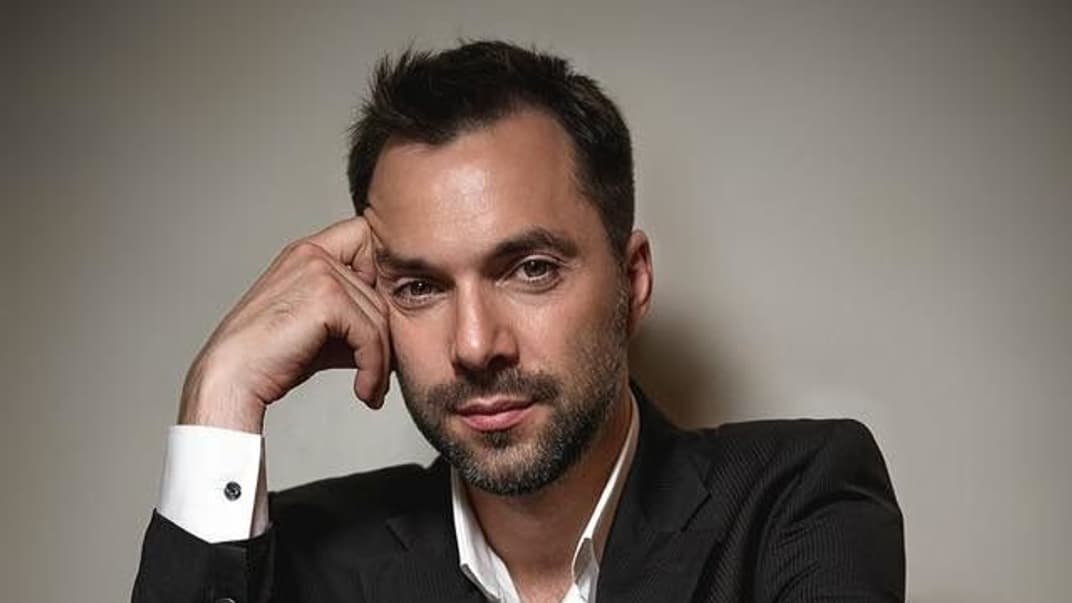
On his YouTube channel, he stated that the Istanbul negotiations held in the spring of 2022 offered acceptable conditions for Ukraine, which included a withdrawal of Russian troops from all captured territories except Crimea. He stressed that the proposed agreement envisioned Ukraine’s neutral status and laid out conditions for discussing Crimea’s future status.
According to Arestovych, that version of the agreement could have become the most significant achievement in the entire history of Ukrainian-Russian relations, as it would have closed the unresolved issues left over after the Minsk agreements. He notes that Russia was indeed considering a complete troop withdrawal and was even willing to discuss Crimea’s status.
“Putin certainly twists facts, but to some extent, his claims that he did not plan to infringe on Ukraine’s sovereignty might have contained a grain of truth in the context of those negotiations. His goal was for Ukraine to have neutral status and address security issues, while the current escalation is the result of missed opportunities,” Arestovych said.
Now, in his view, Russia’s stance has hardened, and with each new round of proposals, the terms become less favorable for Ukraine. He suggests that regaining occupied territories by peaceful means is much more difficult now than it might have been in 2022. Arestovych believes that rejecting those terms was a strategic mistake, as each passing month of war reduces the chances of reaching a favorable compromise. In this context, he references President Volodymyr Zelensky’s speech at the World Economic Forum in Davos, where Zelensky was sharply dismissive of Putin’s proposals for talks.
Arestovych notes that belligerent rhetoric complicates possibilities for a peaceful resolution, and continued conflict only leads to more casualties and destruction. Support for a protracted war is fading even among some top Ukrainian officials who see a need for compromise and diplomacy to prevent further weakening of the country.
War breeds dictatorship
A number of anarchists and left-wing socialists, including activists from movements such as “Revoliutsiyna Diia,” “Ekologichna Platforma,” and “Sotsialnyi Rukh,” took an active part in resisting aggression from day one, viewing Ukraine’s defense as justified and necessary. These groups justified their stance by arguing that, despite its internal problems, Ukraine supposedly retained functioning democratic institutions, unlike authoritarian Russia, making it fundamentally different from its aggressor. Inspired by Mikhail Bakunin’s words that “even the worst republic is better than the most enlightened monarchy,” they declared their full support for the Ukrainian Armed Forces in their struggle for sovereignty and territorial integrity.
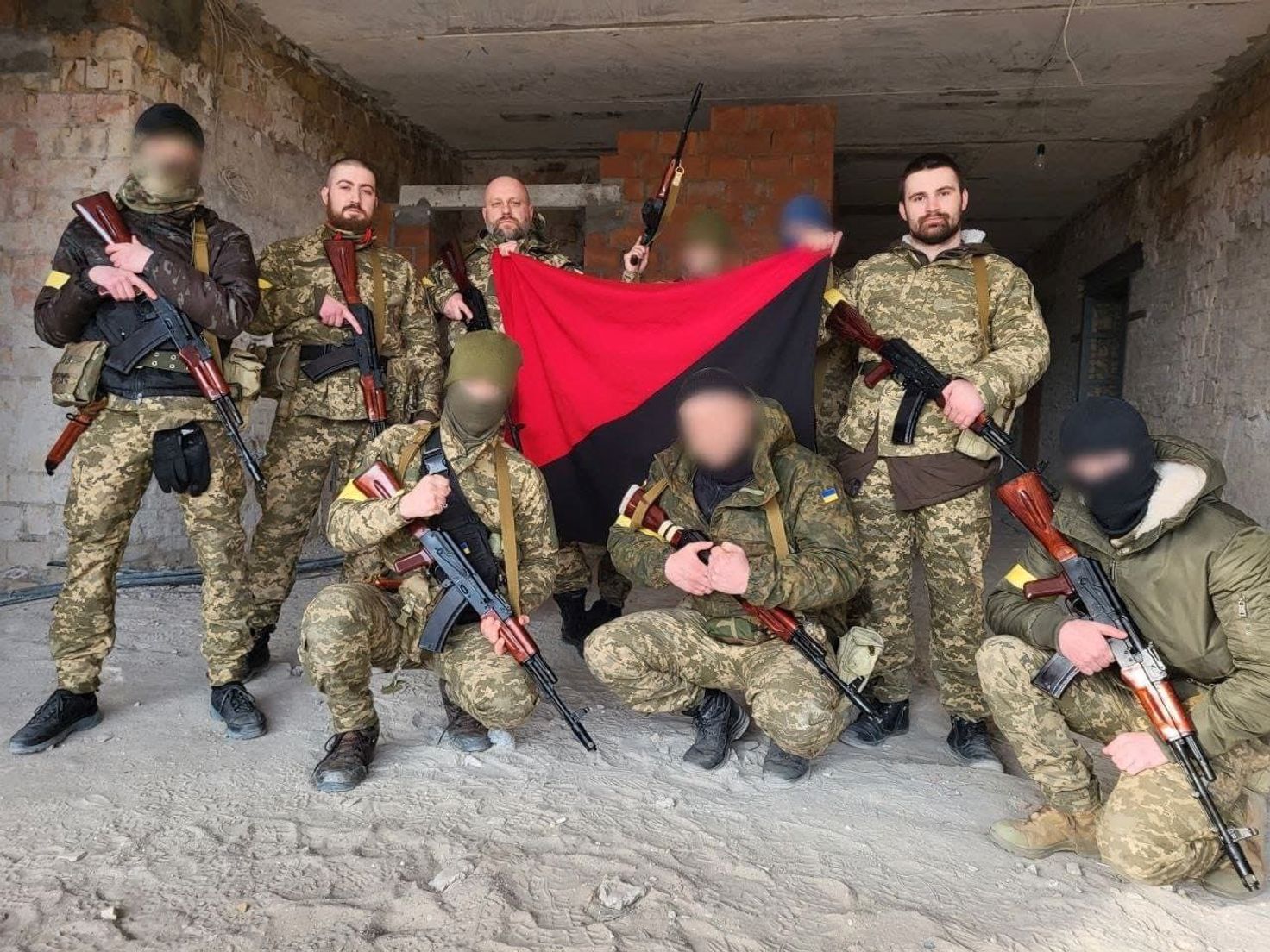
However, despite the theoretical defense of their intentions, an analysis of the political processes unfolding in Ukraine reveals that the democratic institutions these activists relied upon are either being eroded by the Kyiv authorities or are gradually weakening. In fact, the country’s political situation is beginning to resemble the Russian model of governance, where critical decisions are made under centralized control and political freedom is restricted. Even at this stage of the war, there is a clear trend toward strengthening executive power and reducing the role of institutions that safeguard civil rights and freedoms.
In a protracted conflict, state resources are primarily allocated for military needs, inevitably limiting funding for social programs, healthcare, education, and other areas critical to the rights of citizens. Under these conditions, not only does economic inequality rise, but social tensions mount, as a large portion of the population begins to feel the effects of underfunding in vital sectors.
For example, municipal authorities and members of the public in Kyiv have yet to begin restoring the “Okhmatdyt” children’s hospital, which was heavily damaged by Russian shelling in July of this year. Moreover, the charitable foundation “Okhmatdyt — Healthy Childhood,” where compassionate citizens had sent donations to rebuild the hospital after the attack, has refused to transfer the collected funds to the institution. Altogether, the foundation withheld 378 million hryvnias that were intended to help restore the medical facility’s destroyed infrastructure.
The process of militarization and the rolling back of social reforms also exacerbate the divide among different segments of the population: between those who support a stringent policy of victory at any cost and those who worry about the long-term repercussions of war. For many, supporting a protracted war becomes a difficult moral dilemma between preserving independence and sovereignty, and risking the final destruction of the democratic and social norms achieved in recent decades. The question of how to balance military efforts with the need to maintain civil liberties and rights grows ever more pressing.
The intensification of hostilities inevitably leads to infrastructure damage, mass civilian casualties, and social disarray, requiring colossal efforts to restore social and political stability in the future. Over the long term, this could affect the country’s political structure and the prospects for reviving democratic processes and rights. Whether this revival will be feasible in a climate of pervasive militarization is an open question.
Thus, even though initially many left and anarchist groups saw Ukrainian resistance as a potential means to protect democratic values, prolonged militarization amidst war casts doubt on that position.
Military Enlistment Offices (TCC) and Draft Dodgers
In recent months, the actions of territorial recruitment and social support centers (TCC) in Ukraine have drawn significant attention from the public and human rights defenders. The cause is numerous complaints of abuses, unlawful actions, and bureaucratic errors. Specifically, in Odesa, incidents were recorded in which TCC personnel tried to force citizens to fulfill military service obligations, leading to protests and discontent.
A standout incident occurred on June 11 in Odesa, where TCC staff detained a citizen who refused to present his draft documents and brought him to the TCC. This episode escalated after the detainee called an ambulance, creating a conflict between medical personnel and TCC employees. The incident was later classified as hooliganism and became the subject of a criminal investigation.
Another alarming case involved a 22-year-old resident who was detained at the station in Uzhhorod and forced to sign documents for military training, despite having been declared unfit for service in 2019.
In light of such occurrences, public criticism of the TCC has been growing, prompting individual deputies to propose radical measures—disbanding these centers and converting them into combat units to address military tasks.
Adding to this, the sharp rise in criminal cases related to unauthorized absence and desertion among Ukrainian servicemembers underscores a deepening crisis that cannot be ignored. In the first half of 2024, law enforcement agencies opened nearly 29,800 new cases under these articles—a figure that already surpasses the total for 2023 and is three times higher than in 2022. Altogether, since the beginning of 2022, prosecutors have recorded 63,200 such cases. These numbers reveal a harsh reality: approximately one out of every 14 servicemembers has been forced to leave the army in violation of military regulations.
This situation raises serious questions about the nature of the war and its impact on the participants themselves. Unable to endure the physical and psychological strain, many servicemembers look for any way to avoid taking part in the violence. It shows that war, no matter the justifications or aims, leaves deep scars on people’s souls and on society as a whole.
This crisis is made worse by the actions of territorial enlistment centers (TCC), which face severe criticism over unlawful detentions, coercive measures, and bureaucratic mishaps. Such incidents only increase public dissatisfaction, driving people to extreme measures to avoid participation in hostilities. Society is increasingly vocal that violence does not bring stability or peace but only intensifies suffering, creating a vicious cycle of coercion and resistance.
These facts point to the urgent need for alternative solutions and peaceful ways to resolve conflicts. It is time to reflect on the cost of war not only to the state but also to each individual and to embark on a path toward building peace where violence is no longer the tool for addressing problems.
So Why is a Ceasefire Beneficial to Ukraine?
The ongoing war in Ukraine not only takes lives but destroys the nation’s future, plunging the country into economic, humanitarian, and social crisis. For socialists, peace negotiations are not merely a political necessity but also a moral duty to the workers and all the oppressed who suffer from the consequences of this carnage. Why are peace efforts advantageous for Ukraine from a socialist point of view? The answer is simple: because war threatens not only lives and well-being but also social justice and workers’ rights.
1. Reducing Human Losses and Suffering
Every day of war claims the lives of ordinary people—both soldiers and civilians. Workers, students, and the elderly alike become victims of the conflict. For socialists, the priority has always been and remains to preserve the lives and health of working people who, in war, lose the most valuable thing they have—their lives and their future. Peace negotiations offer a chance to stop the bloodshed, prevent new casualties, and ensure safety for millions of Ukrainian citizens.
2. Economic Recovery and Protecting Workers’ Interests
War not only devastates infrastructure but also undermines the country’s economy, exacerbating inequality and poverty. This particularly affects workers, who bear the brunt of economic losses. During war, inflation rises, living standards drop, people lose their jobs, and resources are directed to military spending instead of investment in healthcare, education, and social programs. A peace agreement would open the way for Ukraine’s economic recovery, enabling workers to return to normal life and the country to grow. Only in peacetime can jobs be restored, wages rise, and social protections be guaranteed for all citizens.
3. Humanitarian Catastrophe and the Needs of the Masses
War brings humanitarian disaster: millions of people lose their homes, become refugees, and face shortages of food, water, and medicine, worsening their plight. Workers—whose conditions were already difficult prior to the conflict—become especially vulnerable during war. For socialists, peace is the means to improve the humanitarian situation, provide necessary goods and services to the population, and begin rebuilding devastated areas. Peace talks would help create conditions for humanitarian aid and the restoration of destroyed infrastructure.
4. Strengthening International Solidarity and Supporting Workers
Peace negotiations open up possibilities for heightened international solidarity. Socialists have always stood for the unity of workers around the world, for supporting the oppressed, and for ending wars that serve the interests of capitalists and military elites. A peace process would enable Ukraine to receive assistance from international organizations in rebuilding the country, delivering humanitarian aid, and ensuring reforms aimed at improving the lives of workers.
5. Democratization and Social Justice
Ukrainian workers, like those in any other country, want not only to end the war but also to change the political and social system itself. A peace process should not merely cease hostilities but also launch democratic transformation that guarantees workers a role in decision-making, improves labor conditions and living standards, and expands the rights and freedoms of all citizens. Socialists believe that peace can only be achieved through a thorough democratization, including political, social, and economic reforms aimed at fair distribution of resources and opportunities.
6. Restoring Territorial Integrity and the Self-Determination of Peoples
Socialists support the principle of national self-determination, yet any peace process must consider the interests of all segments of society, not just political elites. Peace negotiations offer Ukraine the chance to regain its territorial integrity through diplomatic channels, showing a genuine commitment to peace on the international stage and thereby strengthening its position, which in turn could increase pressure on Putin and ensure the rights and freedoms of all Ukrainian citizens. A key aspect is protecting the interests of workers rather than local oligarchs or political elites. Only under peaceful conditions can Ukraine be built in such a way that each people and community has the right to address their issues and develop on their own terms.
We, as socialists, believe that peace negotiations benefit Ukraine because they pave the way for the country’s recovery and for the wellbeing of its people. This is a chance for workers to return to normal life, end bloodshed, revive the economy, and build a just society. War always serves those who profit from violence and destruction, but peace is an opportunity for all peoples of Ukraine to live in peace, justice, and solidarity.
What is the Way Out?
Amid today’s war, which brings suffering and destruction, we leftists from Belarus, Russia, and Ukraine share the same understanding that the people of our countries face a daunting yet solvable challenge: achieving peace and justice. The war, which takes lives every day and shatters countless futures, is becoming increasingly unpopular. There is no political or humanitarian justification for continuing this bloodshed. An immediate ceasefire is not only a moral demand but also the demand of millions of people who want to live in peace rather than devastation.
Yet, the ruling elites of our countries—bound by oligarchic interests and the neoliberal order—are incapable of ending this bloody war. War has become an inevitable outcome of this system, a system of inequality, exploitation, and bloc-based politics. All the grandiose talk of “human rights” and “universal values” merely conceals the true face of imperial ambitions fueling the conflict.
A genuine peace can only be forged from below, through the collective efforts of people who, despite the divisions among ruling classes, can jointly strive for a better future. The peace we propose must rest on the principles of peoples’ self-determination and respect for their political, social, and cultural autonomy. This will only be possible when the masses, both on the front lines and the home front, take charge of their own fate and future.
To build this democratic peace, we must begin with thorough political and social democratization in our countries. Millions who genuinely stand for peace, justice, and democracy can bring about real change. They are the ones fighting in the trenches and those working on the home front, and it is precisely their efforts that must shape a new political reality.
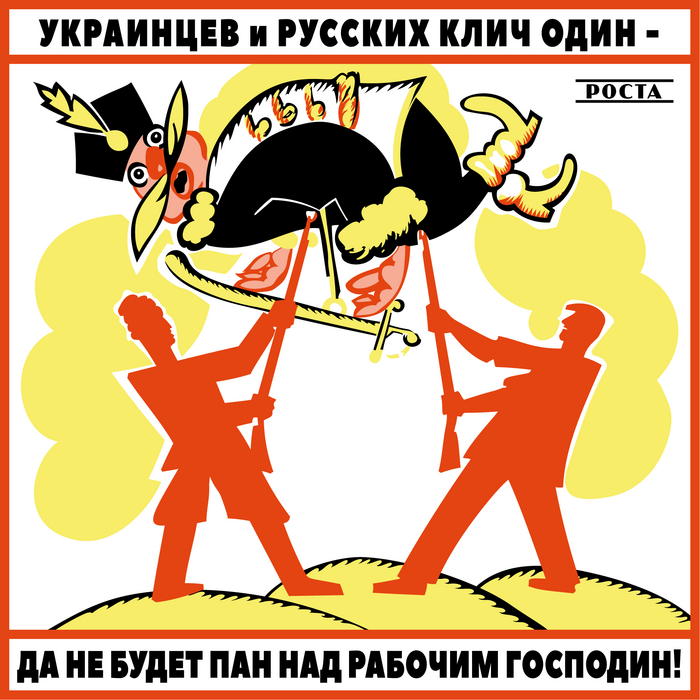
We are convinced that to achieve these goals, Belarusian, Russian, and Ukrainian leftists need to unite in a coalition that allows us to tackle immediate tasks. We must gather like-minded people both locally and in exile. We must develop a joint program for a democratic peace—one that will offer a path to peaceful coexistence among the peoples of our countries. We must initiate an international movement in support of the principles of this peace, one capable of influencing our states’ policies. And finally, we must organize campaigns of support and solidarity for those who share our ideas and strive for peace and justice in Belarus, Russia, and Ukraine.
Only through solidarity, through dialogue about justice and democracy, can we create a future where there is no place for violence, war, or oppression. Our peoples deserve to earn a living in peace, and we as a leftist movement must work together for its realization.
